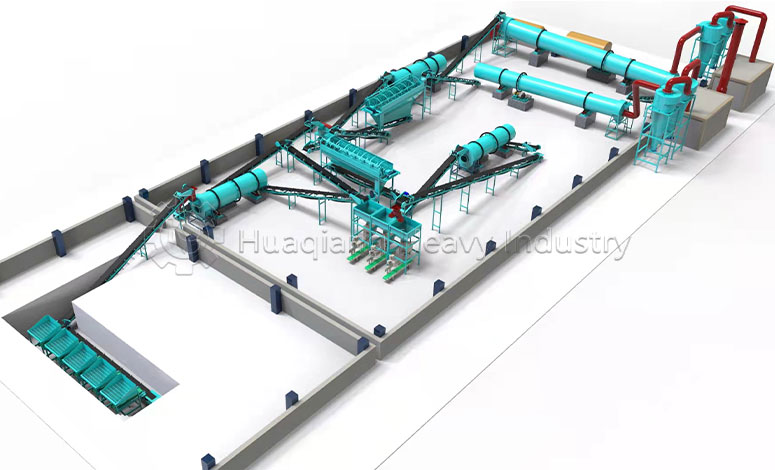A miraculous system that gives agricultural waste a new lease of life
The organic fertilizer production process is nothing short of alchemy – transforming what we discard into what the earth craves. This sophisticated system turns agricultural waste, animal manure, and other organic materials into nutrient-rich fertilizer through a carefully orchestrated sequence of steps.

The Transformation Journey
Our journey begins with raw material preparation. Crushers and screening machines work like meticulous chefs, breaking down bulky organic waste and sifting out impurities. This preparation ensures the perfect consistency for the microbial feast to come.
Next comes the fermentation stage, where compost turners and fermentation tanks become nature’s laboratories. Microorganisms thrive in these controlled environments, breaking down materials while eliminating harmful pathogens and weed seeds. The composting machine plays a crucial role here, regularly aerating the mixture like a careful baker turning dough, ensuring even decomposition.
The real magic happens in the granulation phase. Disc or drum granulators shape the fermented material into uniform pellets, much like forming perfect meatballs from seasoned ground meat. These granules then undergo drying in rotary drum dryers, emerging with ideal moisture content for storage and handling.
Finishing Touches
Before packaging, the granules receive royal treatment. Cooling systems bring them to optimal temperature, while screening equipment ensures only perfectly-sized particles make the cut. Some operations add an optional coating – a thin protective layer that acts like a raincoat, shielding nutrients from moisture and controlling their release.
The final act belongs to automated packaging machines, which weigh and bag the finished product with precision. Throughout this entire organic fertilizer production process, a sophisticated PLC control system monitors and adjusts parameters, ensuring consistent quality and efficient operation.
This remarkable system doesn’t just recycle waste – it creates value, improves soil health, and contributes to sustainable agriculture. The organic fertilizer production line stands as a testament to human ingenuity working in harmony with natural processes.
